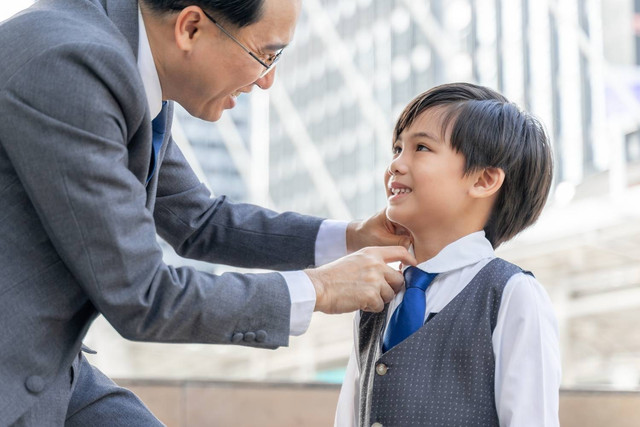Tentang KamiPedoman Media SiberKetentuan & Kebijakan PrivasiPanduan KomunitasPeringkat PenulisCara Menulis di kumparanInformasi Kerja SamaBantuanIklanKarir
2025 © PT Dynamo Media Network
Version 1.103.0
Konten dari Pengguna
The Role of Parents to Build Self-Awareness in Childern
18 Desember 2024 18:03 WIB
·
waktu baca 3 menitTulisan dari Siti Nafirah Ramadhani tidak mewakili pandangan dari redaksi kumparan

ADVERTISEMENT
Self-awareness is a person's ability to understand himself deeply. This means we know who we are, why we do things, and how to act better. This awareness includes how we understand our emotions, thoughts and actions, both those that originate from within us and those that are influenced by our environment. According to experts: According to Goleman, self-awareness is an individual's ability to understand potential, weaknesses, motivations, values and their impact on other people (Salomon & Kalaiyarasan, 2016).
ADVERTISEMENT
Self-awareness in children aged 7-12 years is very important for emotional and cognitive growth. This age is the transition age from children to adolescents. In this age range, children can already think logically but are still limited to physical things (such as space, time, etc.). At the end of grade 6 SD (around the age of 12 years) children have begun to enter a more mature cognitive phase, namely the formal operational phase. This phase is a continuation of the previous phase (concrete operational) where children are only able to think logically on tangible things, while in the formal operational phase children are able to think logically on latent things (Suyono & Hariyanto, 2017). During this transition period, children must be equipped with an understanding of themselves. Among these understandings are awareness of their potential (hidden abilities) and awareness of their role in the surrounding environment (peer and family friendships) (Nashori, 2003). Thus, children's emotional and cognitive growth can go well. This is because children are able to interact with their environment in a healthier way if they are able to understand their role and are able to think more progressively when they realize their potential. Besides all of that, self-awareness is also understood to be able to re-motivate emotional conditions that are eroded by the rampant bullying behavior in elementary school, this is proven through research (Zahra & Hayati, 2022).
ADVERTISEMENT
Self-awareness can be said to be successful if it meets the indicators. What are these indicators?
The role played by parents makes parents the agents of self-awareness formation in children. Here's why parents have an important role in the formation of self-awareness in children:
How to increase self-awareness in children?
ADVERTISEMENT
ADVERTISEMENT

